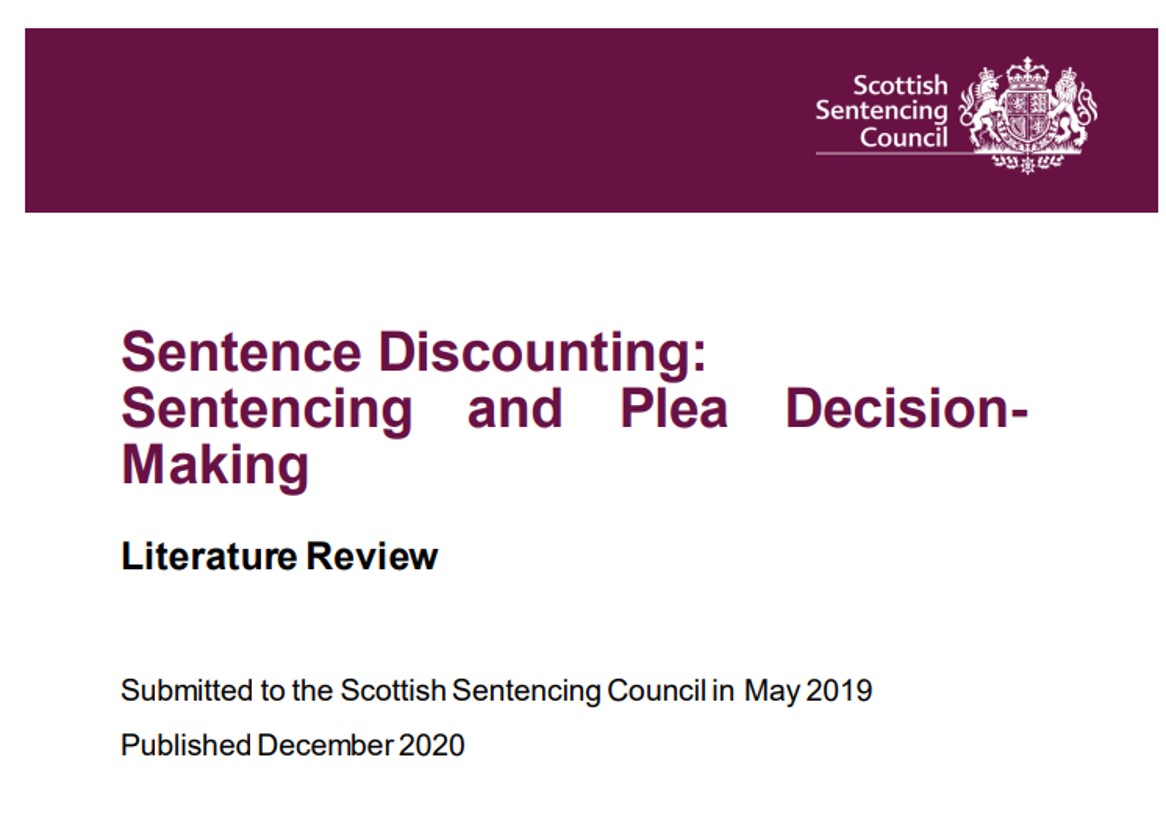Sentence discounting: sentencing and plea decision-making

Contrary to popular culture, criminal trials are rare in Anglo-American systems, with most cases instead being resolved by way of a negotiated guilty plea. The ‘Sentence discounting: sentencing and plea decision-making’ report (Dr Jay Gormley, Dr Rachel McPherson and Professor Cyrus Tata) considered the operation of sentencing discounting in Scotland and other jurisdictions. ‘Sentencing discounting’ (or the sentence differential) is the practice of applying a reduced sentence where the accused pleads guilty. The sentence discount is one of several connected factors which exist in plea decision-making and sentencing and should be viewed in this context.
In terms of community views of this practice, some research suggests that there is a lack of public support for discounting. However, it has also been found that public views may not be based on accurate information. As such, public perception of the operation of the sentence discount might be improved by improving public information on sentencing practice- something which the Scottish Sentencing Council is actively engaged in.
The underlying rationale for the practice of sentence discounting is generally regarded as being efficiency. However, there is a lack of empirical evidence on how this practice affects plea decision-making and early guilty pleas. Without such information, it is very difficult to evaluate such claims of efficiency. Additionally, very little is known about lay perspectives of the sentence differential in Scotland - particularly the accused’s perspective. This is very important since until now, policy development in this area has been informed by the views of legal professionals. Although such views can offer valuable insight, they are not wholly representative of all parties engaged in this process. Important questions remain unanswered: how does the sentence differential arising from the operation of section 196 of the Criminal Procedure (Scotland) Act 1995 impact the decision to plead guilty in practice? Do accused persons believe that delaying a guilty plea leads to a tactical advantage that is reflected in the sentence?
Moving forward, it is recommended that high quality empirical data research is conducted on sentencing and the sentence differential in Scotland. The findings from our report directly inform discussion surrounding the introduction of pre-intermediate diet meetings (PIDM) in Scotland which seek to resolve cases without trial. Practices associated with plea negotiation will be more relevant than ever as the Scottish criminal justice system faces the challenge of a backlog of cases resulting from Covid-19 restrictions.
Dr Rachel McPherson
Dr Rachel McPherson is a Criminal Law Lecturer at the School of Law, University of Glasgow

